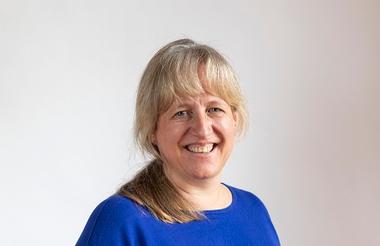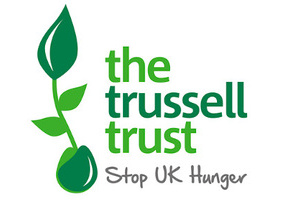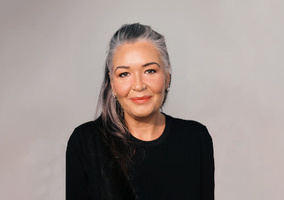The Trussell Trust operates a growing network of more than 1,400 food banks, but chief executive Emma Revie would prefer it if the charity did not have to exist.
“None of us want to be doing this. None of us think it’s right that anyone is going to a food bank,” she says of the charity’s staff.
In 2022-23, the charity’s network distributed a record 2.99 million emergency food parcels across the UK, 37% more than the previous year and more than double the amount it delivered in 2017-18.
“When your vision is to end the need for food banks, to have doubled the number of people having to access them... It’s going the wrong way.”
The general public has donated more to meet this increase in need, with the charity’s accounts for the year ending March 2023 showing a 71% increase in fundraised income.
“It would have been unimaginable to try and meet that increase in need without that support. We were phenomenally grateful that in a time when many people have really felt the pinch of both the pandemic and then the cost-of-living crisis, they have continued to stand with us and support us and people in crisis in their communities.”
Income grows seven-fold in six years
Revie became chief executive of the Trussell Trust in February 2018, when the charity had an income of £7.27m. It has risen to more than seven times that amount since then, with the charity reporting an income of £55.6m in 2022-23.
The steep rise in the Trussell Trust’s income has followed increased media coverage, with mentions of the charity tripling from 11,000 in 2019-20 to 33,000 in 2022-23.
“Food banks have become emblematic, I think, of the fact that we know that there are so many people struggling to make ends meet, and so many people unable to cover the costs of essentials,” says Revie.
“So, there has been a significant increase in awareness and understanding and incredible generosity of people wanting to respond and do something about that which is really encouraging.”
When food and essentials were being stockpiled during the pandemic, it became an example of what food insecurity might feel like, Revie says, which could have increased people’s willingness to give.
“I think all of us experienced a sense of what food insecurity might be like when we were worried about food disappearing off of supermarket shelves.
“It brought it to the forefront of people’s minds. And they responded, unprompted, often, to help us provide support.”
‘We have less resource as a sector’
Revie says one of the hardest things about her line of work is not being able to tell staff that it will get easier, as the number of people needing to use food banks is increasing year on year.
“You can’t say it’s going to get better or it’s going to get easier. You’re asking volunteers and staff to dig even deeper into their lack of resources, into their resilience, and their personal stores to keep going in that context. And I think for many organisations across the sector, people are feeling that way. We’ve had to adapt our services but we’ve also had to do more.”
Trussell Trust’s food banks also provide financial, housing and mental health support for those who use them.
“I think lots of community organisations are finding that they’re having to adapt as services are becoming overwhelmed. You’re doing whatever you can to support people with whatever you have. I think the sector has less resource and yet it has much more need for it than we’ve ever had before, with increased costs that we’ve never seen before.”
The Trussell Trust has not yet closed any of its food banks. Asked when she believes food banks will not have to exist, Revie says: “At the moment it feels quite far away, but it doesn’t have to be. I think if you speak to food banks, and I think more importantly, if you speak to people who are coming to us, it feels really far away.”
Campaigning respectfully
Revie says that it is important that charities campaign in a “respectful” way that “recognises the role that government plays”.
She says that the charity provides evidence it gathers from its food bank network and provides it to all political parties.
“I think generally we are respected for the evidence that we have and the way in which we engage, and that’s something that’s really important to me, and I’d want to maintain.”
Revie says she agrees it is important for charities not to be party political and focus instead on driving policy change.
“We remain in that space where we can all actually be seeking to work together to create that change, rather than allowing any particular issue to become some political football.
“That’s not productive, it’s not helpful and it certainly doesn’t serve the needs of people who are accessing our services. So, we want to build consensus around solutions that will last and will protect people and enable everyone to afford the essentials.”
Mission ahead of ego
Revie first joined the charity sector after attending university, where she worked for an international development agency.
In 2005, she became chief executive of Landmark Training, a charity in east London which supports young people.
She then held CEO roles in the exercise and recruitment sectors before returning to the charity sector with the Trussell Trust.
Over the past 20 years, Revie says charities have become more collaborative, partly enabled by their funders.
“Our commitment to work together as a sector to create change, that genuine partnership and collaboration takes a huge amount of work and it’s not always the easiest path.
“That focus on mission ahead of ego, where we’re promoting our shared charitable purposes on our beneficiaries rather than just focusing on sustaining our individual charities has been a real shift.
“It gives me hope that we can actually tackle some of those bigger social injustices. It’s because together we’re much stronger, and we’re much louder, and our voice is much harder to ignore.”
‘Our food banks are tenaciously holding on’
Revie says one food bank manager told her that providing a food parcel sometimes feels insufficient.
“If somebody’s not able to afford food, they’re not able to afford their heating. They’re struggling with getting school uniforms or school shoes for their kids. No, food is not the answer.
“It’s about people not having enough money for the essentials. It’s a travesty that there are so many food banks. But I also think it’s just extraordinary that our food banks are tenaciously holding on and they’re just trying to do everything they can to support people. So, it’s a strange paradox.”
The Trussell Trust is running a campaign with the Joseph Rowntree Foundation that asks for the basic rate of Universal Credit to be uprated by £35 a week to cover the costs of food, bills and travel.
“It’s really causing a problem. So, the government and whichever government we have after the election should put in place that guarantee that at the very least, social security will cover the cost of those essential items we all need to live. We believe that would make a radical difference to the number of people who need to come to food banks.”
Past interventions have worked, Revie says, with one-off cost-of-living payments that the government provided making a quick impact.
“What we saw was immediately when those cost-of-living payments were received, in the three weeks after, numbers of people coming to food banks dropped significantly.”
Revie says that three-quarters of people accessing the Trussell Trust food bank network are disabled or come from a household with a disabled person, which is due to the higher costs associated with ill health or a disability.
“We know that our social security system, that provides protection and the dignity for people to cover the cost of their own essentials such as food and bills, is a really vital aspect for a future without the need for food banks.
“Social security is sitting at its lowest value in 40 years whilst we’ve seen inflation at a 40-year high. It’s really clear why it is that so many people are having to come to a food bank.”










